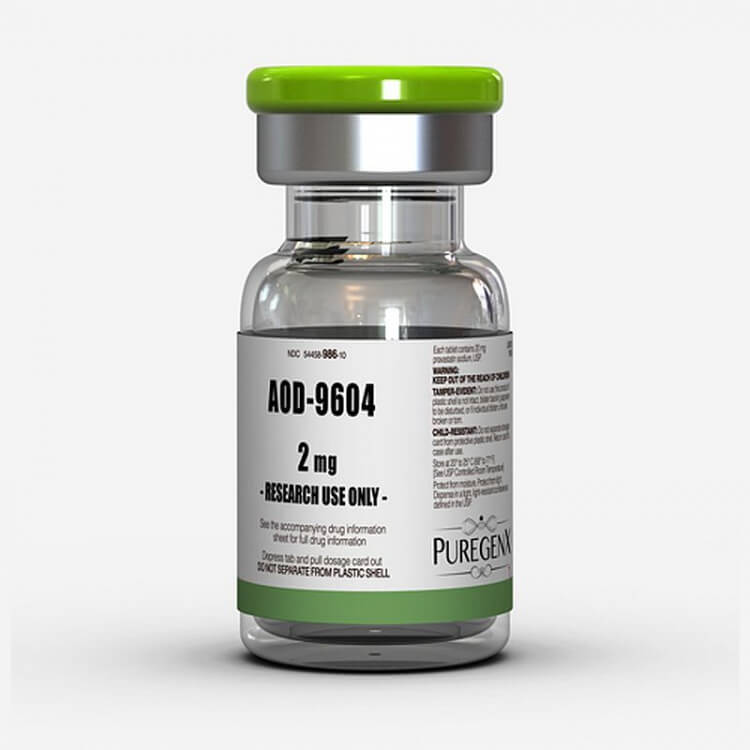
Q: “What do you think of AOD 9604? I like the idea of promoting fat loss without the possibility of causing GH belly or nerve pain. Is it legit?”
A: AOD-9604 (HGH residues 177-191 with a tyrosine added to the N-terminus) certainly promotes fat loss in rats and mice. So far as is known, it works in them only by increasing the number and activity of beta-3 receptors.
In these species, beta-3 receptors have very high relevance to overall metabolism. In humans, the relevance is not much.
So the mechanism of action is not very promising, but leaves the possibility of at least some effect.
In human cells in vitro (in cell culture as opposed to in a living person), AOD-9604 promoted lipolysis in obese fat cells but not normal fat cells. This also seems not too promising, at least for the non-obese human user.
The company which developed it, Metabolic Pharmaceuticals, did have a small early study done which showed a small amount of fat loss at 1 mg per day but not really any other dosing. Measured effect was less at higher doses. In total the company did at least six studies. According to the lead researcher of five of the studies, Dr Gary Wittert, results were uniformly negative.
In 2007 the company abandoned development of AOD-9604 as a fat loss drug after having spent $50M on it.
I have no direct personal reports on effect of the compound. There have been a few reports put out on the Internet, but I have no better ability to summarize such findings than anyone else and generally don’t go by that, except of course I do give credence when there’s a clear, large body of results. That’s not the case here, and what there is, is certainly not in the direction of this being the next wonder.
Might the stuff have an effect? Maybe. Sometimes a small effect is hard to measure to statistical significance in a formal study.
Is it worth the cost? Almost certainly not.
Is it likely to make a large difference in your fat loss? The evidence is that it will not.

About the author
Bill Roberts is an internationally-recognized expert on anabolic steroids and performance-enhancing drugs (PEDs). He received a bachelor degree in Microbiology and Cell Science and completed the educational and research requirements for a PhD in Medicinal Chemistry at a major American university.
Bill entered the nutritional supplement industry prior to completing his doctoral thesis but his education was invaluable so far as being able to design/improve nutritional supplement compounds, since it was in the field of designing drug molecules and secondarily some work in transdermal delivery.
His education was not specifically "geared" toward anabolic steroids other than expertise with pharmacological principles having broad applications. This has allowed Bill to provide unique insight into the field of anabolic pharmacology with knowledge of points which he would not have known otherwise.
As you’ve mentioned, the mechanism in rats is not the same in humans. Therefore, the metabolic results could also not be the same. Maybe those who have tried the peptide are losing weight due to a placebo effect?